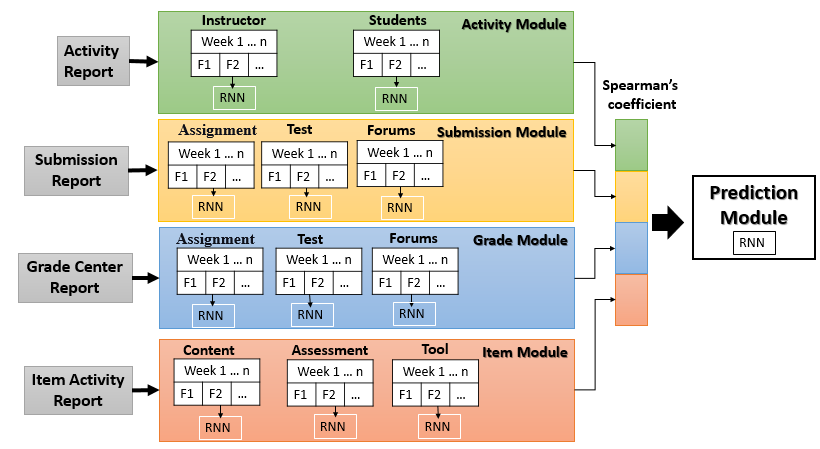A deep learning model for predicting at-risk students based on online learners’ user behavior
Students names: Amnah Awadh Allah Alsulami
Supervised by Dr. Miada Almasre
-
-
-
-
Despite the currently noticeable reliance on Learning Management Systems (LMSs) to support or deliver e-learning and distance learning programs in many Saudi Higher Education (HE) institutions, monitoring the seriousness of students' academic engagement remains outside the scope of these institutions' quality assurance and contingency plans, which, unfortunately; leads to observing lower engagement levels among learners in online educational environments. Ultimately, this decreasing student engagement might lead to academic wastage instances where learners fail to meet online course interaction and assessment requirements, resulting in their academic failure. Hence, identifying such at-risk students should become a priority for HE institutions in Saudi Arabia to ensure the quality of e-learning programs as well as counteracting the impact of potential educational wastage. This is where Educational Data Mining, Learning Analytics representing students' behaviour inside the LMS, and Deep Learning techniques come into play as academic data, which can be used, not only for retrospective evaluation of learning, but as the gateway to informed predictions of learners' future performance.
Not surprisingly, the need for developing at-risk profiling models becomes apparent in cases when large numbers of students are taking a foundation course, where instructors fail to monitor their progress in real-time. At King Abdulaziz University (KAU), such a situation is observable with Foundation-Year students who enrol in the compulsory, 4-level English course, which should be completed for them to pass their foundation-year requirements.
Thus, the proposed study aims to utilize Deep Learning (DL); specifically, Recurrent Neural Networks (RNNs), to develop model that predict students' pass or fail status inside the online course based on weekly sequential data extracted from the Blackboard Learning Analytics system (A4L) used in KAU. Five modules go into this model’s composition: 1) Activity module, 2) Submission module, 3) Grade module, 4) Item module, and 5) the prediction module. The models’ accuracy and performance, as they undergo evaluation, will be compared to a baseline model.
The study aims to develop Deep Learning predictive models that can be used to identify at-risk students based on their behaviour inside Blackboard, the official LMS in KAU. This general objective can be broken down into:
- Identifying critical LMS behaviour (interaction or activity measures) that impacts students’ online learning activity; eventually, their achievement.
- Developing Deep Learning, RNN-based models to predict at-risk students based on select LMS interaction features, which are not covered in the default Blackboard risk profile dimension.
- Evaluating the accuracy and performance of the models against the related studies whence the accuracy, recall, precision, and F- score.
- Developing an interface that streams the best performing, and accurate model’s output into Blackboard Learn as notifications sent to at-risk students.
The methodology adopted for this research consists of five components ideally culminating in the development of a deep learning predictive model, which detects at-risk students based on their LMS interactions, using deep neural networks:
- Data Sources
- Data Collection
- Data Preprocessing
- Feature Engineering
- Model Development
- Evaluation

The main expected outcome of this research is a high performing deep learning model capable of accurately predicting students who are reaching the risk zone based on their behaviour inside LMS, and notifying them at the optimal time that is enough them to improve their performance and avoid the drop-out.
|
Last Update
6/4/2023 1:16:19 PM
|
|
|
|